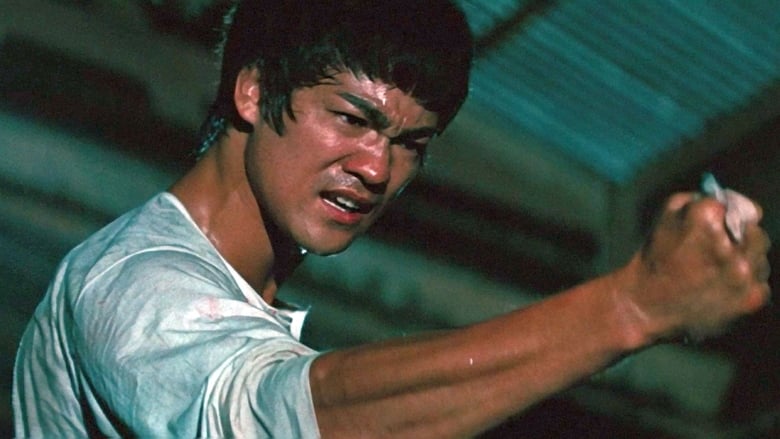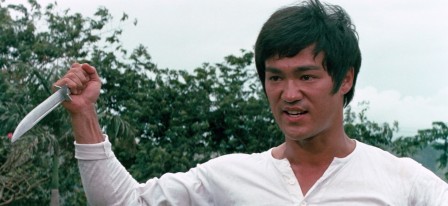← Back to Reviews

in
#533 - The Big Boss
Lo Wei, 1971

A young Chinese man comes to Thailand and takes a job in an ice factory but must contend with the incredibly corrupt employees and their boss.
One of the reasons that I never became a huge fan of Bruce Lee is that, despite his considerable combative abilities and iconic screen presence, that never quite felt like enough to fully carry a film. As a result, his films always felt at least a little underwhelming despite the makers trying their best to weave sufficiently entertaining plots and characters in between scenes of kung fu carnage. The Big Boss marked the first leading role in Lee's career and, in a lot of ways, it serves as a rough draft for the handful of films he made before his passing. Lee plays a Chinese labourer who has traveled to Thailand looking for work. He moves in with some relatives and gets a job at a nearby ice factory, but of course there's more to the situation than meets the eye. It turns out that the ice factory is a front for a drug-smuggling operation and the people who run said operation are willing to kill any unfortunate workers who see too much or start asking too many questions. After enough workers have mysteriously disappeared, it then falls to Lee to start investigating just what is going on, though the villains use every possible tactic to either win Lee over or simply eliminate him.
The problem with The Big Boss being the first Lee-starring feature is that, while it uses a lot of the same ideas that get refined in later films, here they can't help but come across as rough and (I hate to say it) boring. The plot isn't supposed to be the most important part of this film, but here the scenes that are dedicated to crafting it feel incredibly leaden. Lee's character is another one of his stubbornly honourable heroes, though even by that standard he still lacks any sufficiently interesting development (even his character's oath of non-violence barely has any relevance). The sole exception would be the brief sequence of events in which the villains encourage him to side with them by not only promoting him within the ice factory but by also plying him with strong drink and fine women (which naturally causes friction between him and his working-class housemates who believe that he has sincerely turned traitor). That's still not good enough to justify how thin the plot is the rest of the time, which is especially distracting considering the lack of satisfactory action in this film. Though there is a comedic edge to the confrontations, it soon becomes obvious why the blatant attempts at humour were slowly phased out of later Lee films. As a result, I barely noted much in the way of interesting action until the last twenty minutes or so, and by then it was too late. The Big Boss may have laid down a lot of the foundations for some fairly good films, but that hardly makes it great in its own right. Not even the inclusion of some of my favourite bands on the soundtrack (whoever heard of a kung fu movie that featured Pink Floyd and King Crimson?) is enough to favourably distinguish it.
Lo Wei, 1971

A young Chinese man comes to Thailand and takes a job in an ice factory but must contend with the incredibly corrupt employees and their boss.
One of the reasons that I never became a huge fan of Bruce Lee is that, despite his considerable combative abilities and iconic screen presence, that never quite felt like enough to fully carry a film. As a result, his films always felt at least a little underwhelming despite the makers trying their best to weave sufficiently entertaining plots and characters in between scenes of kung fu carnage. The Big Boss marked the first leading role in Lee's career and, in a lot of ways, it serves as a rough draft for the handful of films he made before his passing. Lee plays a Chinese labourer who has traveled to Thailand looking for work. He moves in with some relatives and gets a job at a nearby ice factory, but of course there's more to the situation than meets the eye. It turns out that the ice factory is a front for a drug-smuggling operation and the people who run said operation are willing to kill any unfortunate workers who see too much or start asking too many questions. After enough workers have mysteriously disappeared, it then falls to Lee to start investigating just what is going on, though the villains use every possible tactic to either win Lee over or simply eliminate him.
The problem with The Big Boss being the first Lee-starring feature is that, while it uses a lot of the same ideas that get refined in later films, here they can't help but come across as rough and (I hate to say it) boring. The plot isn't supposed to be the most important part of this film, but here the scenes that are dedicated to crafting it feel incredibly leaden. Lee's character is another one of his stubbornly honourable heroes, though even by that standard he still lacks any sufficiently interesting development (even his character's oath of non-violence barely has any relevance). The sole exception would be the brief sequence of events in which the villains encourage him to side with them by not only promoting him within the ice factory but by also plying him with strong drink and fine women (which naturally causes friction between him and his working-class housemates who believe that he has sincerely turned traitor). That's still not good enough to justify how thin the plot is the rest of the time, which is especially distracting considering the lack of satisfactory action in this film. Though there is a comedic edge to the confrontations, it soon becomes obvious why the blatant attempts at humour were slowly phased out of later Lee films. As a result, I barely noted much in the way of interesting action until the last twenty minutes or so, and by then it was too late. The Big Boss may have laid down a lot of the foundations for some fairly good films, but that hardly makes it great in its own right. Not even the inclusion of some of my favourite bands on the soundtrack (whoever heard of a kung fu movie that featured Pink Floyd and King Crimson?) is enough to favourably distinguish it.
